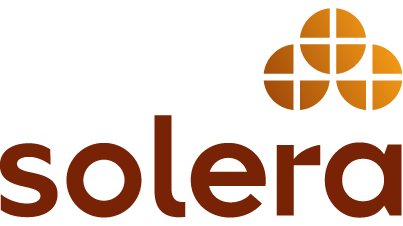Our approach is a big factor in our success, which translates into success for our clients. There are 6 components which make up our approach: Transparency, Keeping You Informed, Investment Philosophy, Expenses & Taxes, Risk Management, and Discipline.

Transparency
We practice advanced disclosure. Among many things, we disclose any and all conflicts at the onset of the relationship and we act in your best interest at all times. This is an important relationship that not all brokers and advisors have with their clients, at SOLERA it is standard practice.
We are fiercely independent. Because of this independence, we are never confused by competing corporate goals, investment banking departments, in-house products, or quarterly earnings reports. Our investment advisory compensation is transparently disclosed with no hidden fees or costs. In so many words, our interests and our clients’ interests are aligned.
Keeping You Informed
Our management approach is grounded in an understanding of our client’s entire financial picture. We recognize that many of our clients have unique and often complex wealth and investment programs. For clients to reach their goals, it is important to consider asset allocation, but also tax, cash flow issues, and generational planning. By incorporating all of this information, we can help guide our clients in making ongoing strategic decisions.
We meet with our clients regularly to update planning needs, discuss portfolio performance, factors affecting the portfolio, and changes being considered in the next period of time. Communication is embedded in our culture.
Investment Philosophy
Too often, fear, greed, overconfidence, and lack of knowledge drive investment decisions. In many cases investors can be their own worst enemies.
We do not fall prey to the investment de-jour promoted on TV stations or radio shows.
When formulating portfolios, we apply these general concepts:
- Keep expenses as low as possible.
- Diversify and rebalance systematically.
- Minimize taxes.
- Think long-term yet manage against loss in the short term.
- Recognize that asset allocation determines the majority of portfolio performance.
- Apply discipline throughout the investment process.
Expenses & Taxes
Have you ever invested in a mutual fund that declined only to receive a capital gain tax bill at the end of the year?
Or, have you anguished over when to sell an underperforming investment or annuity because of a broker’s deferred fee charge?
As a result, our investment vehicles are chosen without bias. This allows us to focus on the most appropriate investment options for our portfolios.
In some cases, tax avoidance, or finding the absolute lowest cost investment could be a detriment to the portfolio. We advise clients to take all considerations into effect when making those decisions impacting their portfolio.
We spend time to make sure that our investment line-up not only keeps costs low but also is tax efficient. Solera Asset Managers does not provide tax services.
Discipline
The equity markets have provided wonderful returns over the last 100 years, yet many investors have had poor investment results. Why? Because too much energy was focused on stock picking, market timing and return chasing.
We focus on areas we are able to directly control: tax efficiency, diversification, risk, cash flow needs, rebalancing, and costs. Allocations are based on each client’s specific situation, not what some investment “guru” is guessing what the market is going to do over the next few months.
We work with clients to successfully avoid behavioral traits like irrational exuberance and regret avoidance that weaken resolve and can cause poor investment advice and decisions.
Risk Management
Defining the amount of risk that needs to be taken to achieve a particular goal or objective drives the asset allocation. This is one of the final steps in the process of the financial plan. Risk is specific within various asset classes. However, the combination of multiple non-correlated asset classes can reduce the risk to the overall portfolio.
Risk management extends beyond the investment portfolio. Liability management, emergency liquidity preparation, business risk management and insurance protection to mitigate risk may also matter during the course of your lifetime.
Managing the constant balance of growth and safety is essential to achieving your goals.

